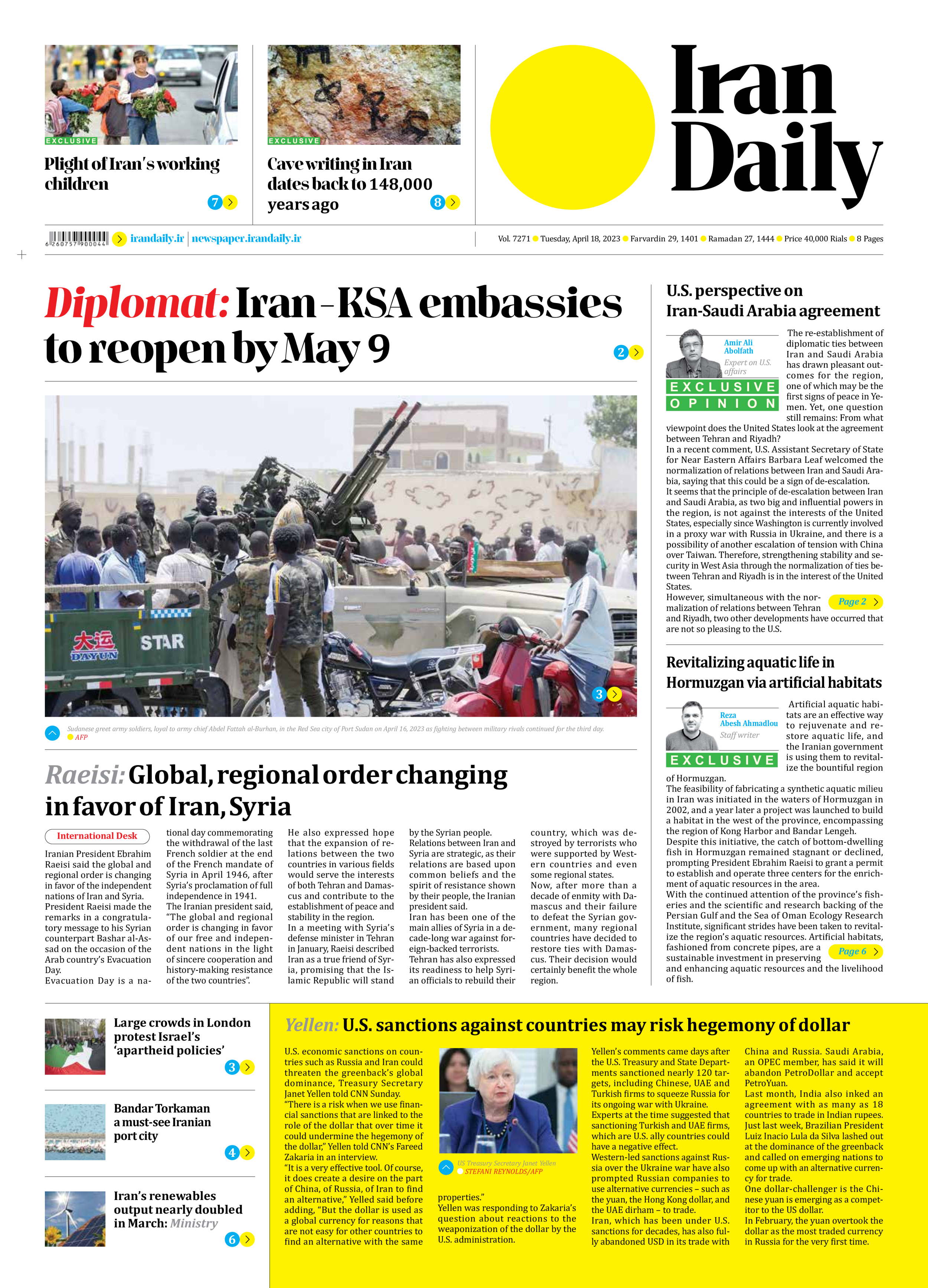
U.S. perspective on Iran-Saudi Arabia agreement
Amir Ali Abolfath
Expert on U.S. affairs
The re-establishment of diplomatic ties between Iran and Saudi Arabia has drawn pleasant outcomes for the region, one of which may be the first signs of peace in Yemen. Yet, one question still remains: From what viewpoint does the United States look at the agreement between Tehran and Riyadh?
In a recent comment, U.S. Assistant Secretary of State for Near Eastern Affairs Barbara Leaf welcomed the normalization of relations between Iran and Saudi Arabia, saying that this could be a sign of de-escalation.
It seems that the principle of de-escalation between Iran and Saudi Arabia, as two big and influential powers in the region, is not against the interests of the United States, especially since Washington is currently involved in a proxy war with Russia in Ukraine, and there is a possibility of another escalation of tension with China over Taiwan. Therefore, strengthening stability and security in West Asia through the normalization of ties between Tehran and Riyadh is in the interest of the United States.
However, simultaneous with the normalization of relations between Tehran and Riyadh, two other developments have occurred that are not so pleasing to the U.S.
First of all, the re-establishment of diplomatic relations between Tehran and Riyadh is against U.S. efforts to isolate Iran, particularly since, after this rapprochement, other Arab governments such as Bahrain and Egypt are also looking for normalization of relations with Tehran.
Secondly, the mediator between Iran and Saudi Arabia was China; this means that Beijing’s role in West Asia and the whole world is becoming more serious.
As a result, although the U.S. agrees with the principle of de-escalation between Tehran and Riyadh, Iran’s removal from its alleged isolation and China’s role becoming more prominent is not pleasing to the U.S. In fact, some of the de-escalations in the region are not to the benefit of the United States. For example, the normalization of Arab countries’ relations with the Syrian government – which will accelerate after the Tehran-Riyadh agreement – is not pleasing to Washington; and if peace in Yemen leads to delegating more power to the Houthis, it will not be met with U.S. consent.
Generally, de-escalation and strengthening peace and stability in the region – if it leads to Iran gaining more power – will cause concern for the U.S. Therefore, the United States’ position is directly related to Iran’s position after de-escalation.
The U.S. hopes that the agreement between Riyadh and Tehran would lead to Saudi Arabia having the upper hand in regional relations, while Iran would be restrained.
Only time will tell if developments will go according to the United States’ wishes or not.







